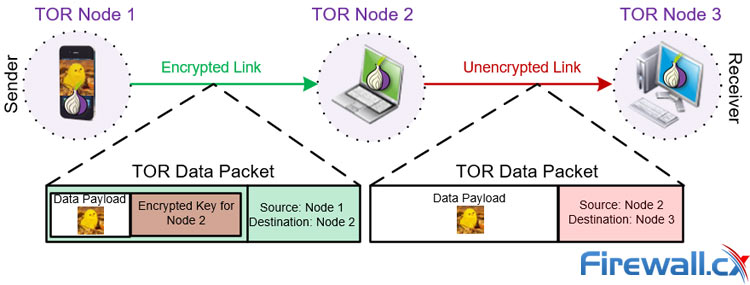Featured
Table of Contents
10 Best Vpn Services Of 2023
The developers explain Tor as software that assists protect you online. It's a free tool that lots of privacy nuts use. When you use the Tor Internet browser, it reroutes your web traffic through the Tor network of volunteer servers spread worldwide. Each connection bounces through 3 servers prior to reaching the desired destination.
Helps bypass geoblocking and censorship: if some website is blocked in your nation, Tor can allow you to access it. Your connection can just be as quick as that of the slowest node.
Using it to download files slows down your web connection even more. Lots of Tor users would have to wait 3 times as long to download something. Node vulnerability: if you're not using an HTTPS connection, your information is noticeable on the exit node. As Tor runs on a volunteer network, you can't understand if your data isn't being obstructed.
Tor Vs Vpn: What Are The Differences? Which One Is Better?
Bad for accessing specific geoblocked material: it's challenging to access geoblocked content that is only offered in a single country. Random node choice suggests you can't actually manage the country where your exit node and the IP service checks out will be. Restricted ease of access to websites: some everyday sites block Tor network connections.
Having the ability to choose what server you'll connect to, only routing information through a single server, and having the business look after the servers makes sure that the VPN connection is practically as quick as using vulnerable internet. Nevertheless, this approach is more pricey to maintain. Excellent internet speed: since VPNs just bounce your signal via a single server, your connection is much quicker.
This allows Tor to ensure that none of the servers know both the sender of the information and its location, while a VPN warranties better speed and an actual choice of server. Notably, a VPN can supply a multiple-server feature. For instance, Dynamic Multi, Hop permits Surfshark VPN users to pick two servers to path their data through.
Tor Vs. Vpn – Which One Is Best For Your Online Privacy?
You ought to do so if you're accessing. onion sites. What's the benefit? If your web traffic links to the VPN server prior to the Tor network, the VPN server spoofs your IP. That suggests that even if the Tor entry node is jeopardized, the interested party will not have the ability to get your IP address.
As long as you have a relied on VPN service provider, utilizing the Tor browser with a VPN may be a worthy trade-off. Tor and VPNs are privacy tools with similar purposes.

Tor is safer for sharing delicate information or anything else that might put you at danger. But overall, it's primarily for searching it's sluggish and not fit for downloading files or streaming. A VPN, on the other hand, is much quicker. It can likewise offer the very same levels of security and privacy if you have a good and relied on provider.
Vpn Vs Tor: A Comprehensive Comparison [2023]
Tor will secure the Spotify site but not the app, while a VPN will secure both. Tor runs your data through several layers of encryption at as soon as, while VPN suppliers typically just use one layer.
Yes. Tor conceals your IP when you are trying to find something on Tor. It is very important to keep in mind, however, that this only applies to the internet browser itself. Any traffic that does not go through Tor will be exposed. Using a VPN with Tor can result in web speed downturns: You are routing information by means of four servers; The VPN server and the Tor entry server may lie far apart.
VPN is much better for streaming, downloading, and other everyday usages. In other words, the distinction is that Tor routes your web traffic via three random servers and encrypts it three times, VPN routes it by means of a single server of your choice and secures it once, and a proxy just routes your traffic through a single server.
Tor Vs. Vpn: Is One Better Than The Other?
No matter why you desire to remain incognito online, you're most likely to select a Virtual Private Network (VPN) or Tor browser. To put it merely, Tor is best for those transferring sensitive info.
Table of contents Tor and VPN are tools utilized to remain confidential online. The Tor browser is a free, open-source job allowing you to browse the web anonymously.
Yes, the name sounds silly, but the concept behind it is fantastic: the Tor internet browser network is constructed of layers upon layers of independent nodes run by Tor users. A VPN assists you secure your online personal privacy by developing a protected connection to any network or server over the web.
Comparison Between Vpn And Tor Based On Cia Triad ...
The essential difference between Tor and a VPN is that there are multiple VPN tools and company available but only one Tor internet browser network. Tor counts on a decentralized layer of independent nodes to transfer information firmly, while VPN software application connects to a main server to supply a safe VPN tunnel.
Latest Posts
Best Mobile Vpn Services For Phones And Tablets - Youtube
The Best Vpn Services For Business (Including Small ...
Best Vpns Of 2023